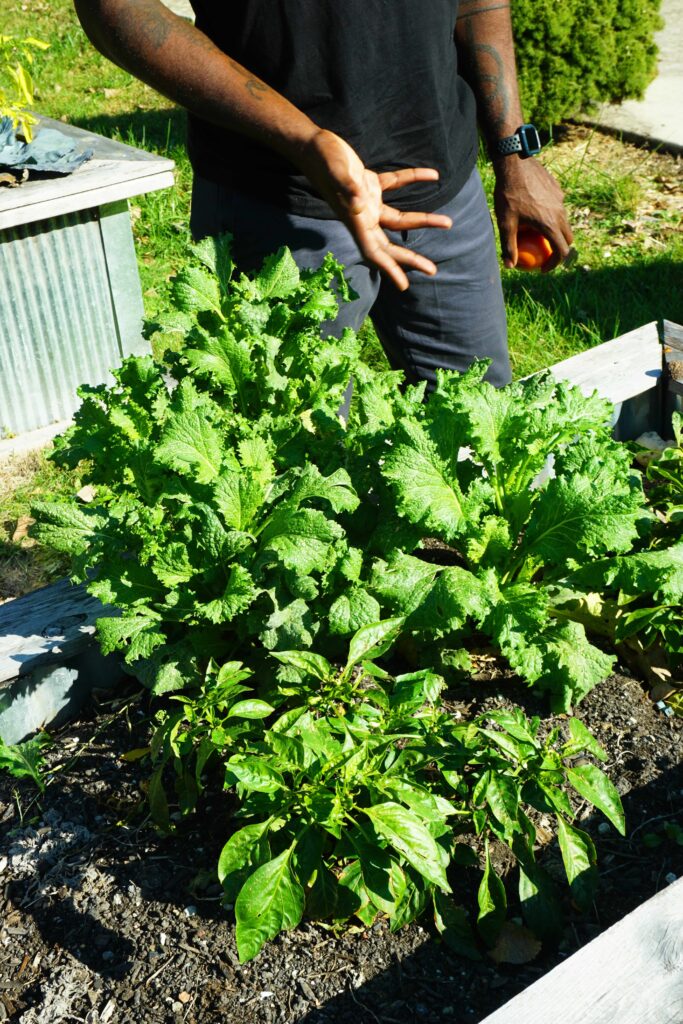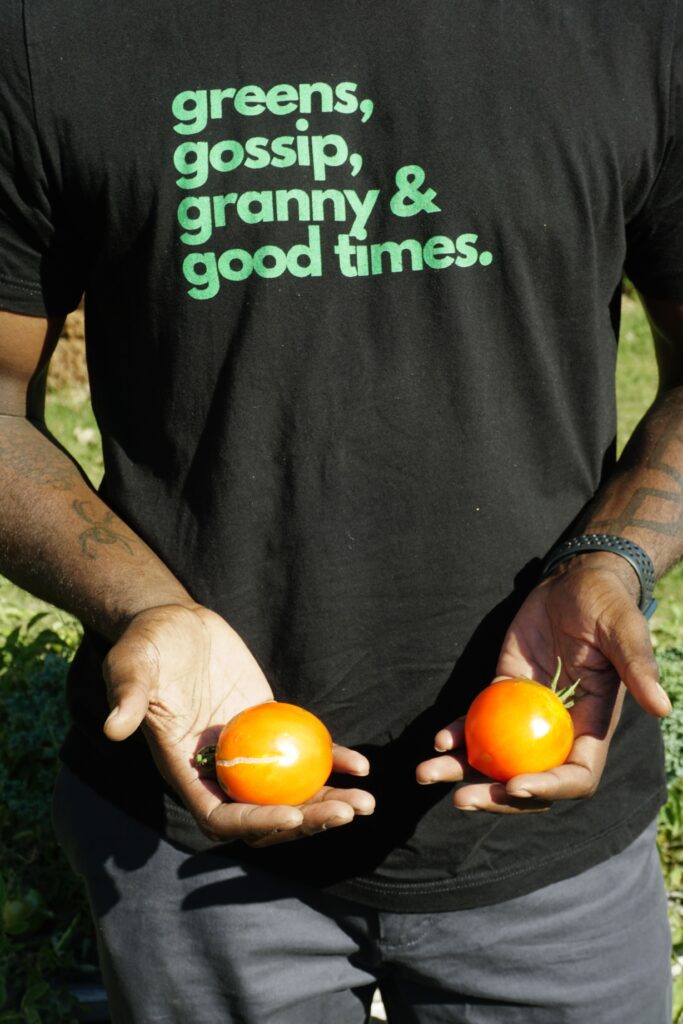Stephan Hamer took over his family homestead on Chicago’s South Side in 2023. As an experienced farmer in permaculture and homesteading, his vision for the three-lot home and farm acquired by his late grandmother is elusive.
“Being a caregiver to my grandmother really reshaped how I engage with people overall and how I engage with myself, coming from a space in a place of genuine care,” Hamer said. “I think that’s why I haven’t taken the next steps to make this space into a profitable space, because I think there’s still some baking that has to happen for this space with community and connecting with the land.”
In the heart of Englewood, Hamer is working to construct a very different story about the neighborhood. According to the Chicago Metropolitan Agency for Planning (CMAP), Englewood’s average household income is roughly $28,000, compared to the overall City of Chicago average of about $72,000. The once thriving community for Black Chicagoans during the 1970s, bogged down by years of disinvestment and discriminatory practices, has ended up with a swarm of disproportionate vacant lots and a retail leakage of nearly $200 million per year.

Englewood is also impacted by realities of gun violence — the neighborhood ranked second in the city for most gun violence victims with 4.65 shooting victims per 1,0000 residents in 2022.
“When we moved to the South Side, there was this strong narrative around “danger” so my grandmother didn’t allow us to engage,” Hamer said. “So when we were younger, this was the only space we had to operate in.”
At the Hamer Family Homestead, Stephan admits to feeling a responsibility as a community resident. Along Marquette Road, a main thoroughfare in Chicago’s Englewood neighborhood, sits an urban farm that grows black walnuts, pears, muscadine grapes, kora, green tomatoes, blackberries, and kale. He has transformed much of the produce into jams, jellies, pies, and personal care products, often simply giving them away to friends and community members.
“I am welcoming for the community and neighbors to come in and pick things,” Hamer said on the land he inherited after his grandmother’s passing in 2023. “I do prefer for a relationship to be established, though, just for a matter of trust and caution, but I’m also still open to have people come in and hear what they think, feel, and see the space to be.”
Hamer’s grandmother, Alma Hamer, married into the family of Fannie Lou Hamer, famed Chicago civil rights activist and pioneer of the Freedom Farm Collective. Alma Hamer purchased the home in 2003 and acquired surrounding properties through the city’s Dollar Lot Program.

For many other urban farmers, land ownership is a major obstacle to the proliferation of urban agriculture. In cities like Baltimore, Detroit or Milwaukee, both the cost of land or restrictive zoning laws have brought closures to accessible farms for majority Black communities. As of 2020, Black farmers only make up 1.3% of all farmers in the United States, according to Reuters.
“Whether we’re canning tomatoes or we’re canning pears, there has to be a lot of opportunity to rethink where or how what will be considered a food desert can be transformed or flipped on its head when folks are given the resources to use, reuse, and reimagine how food is grown in communities,” Hamer said.
From foraging to supporting native species, Hamer advocates for finding ways to make use of plants that are already in abundance. Although unkempt vacant lots are often viewed as a blight to a community, the overgrowth is often more than just weeds — Illinois’ native plants like Goldenrod are easily accessible in these conditions.
“I think there’s a lot of potential in Englewood for agricultural land use,” Hamer said. “There’s a tone of empty space in Englewood that a lot of organizations have already been able to acquire and yield certified organic produce so I look at Englewood already as a food forest.”
To address the inequities of farming, senators introduced the Justice for Black Farmers Act of 2023 to end discrimination in the Department of Agriculture, create a farm conservation corp, and provide up to 160 acres of land to aspiring and existing Black farmers. Under President Biden, the Inflation Reduction Act provided $2.2 billion for farmers who experience discrimination under the Department of Agriculture’s farm loan programs.
The future iterations of the Hamer Family Homestead seem limitless according to Hamer. The only constants seem to be its steward’s tireless responsibility and the engaging community that hopes to support it.
“How can this space be used for good, for community, for my family and for myself?” Hamer asked himself. “Because it is a safe haven.”
The post Black Urban Farmers Are Preserving Generations Of Knowledge In America’s Biggest Cities appeared first on Blavity.

